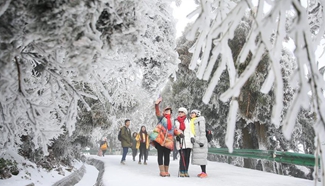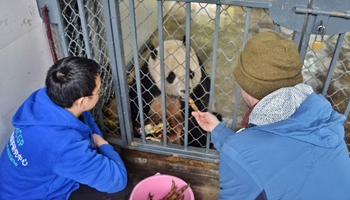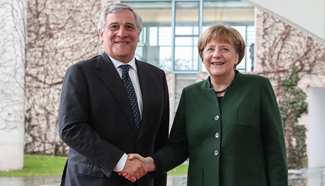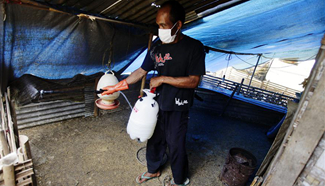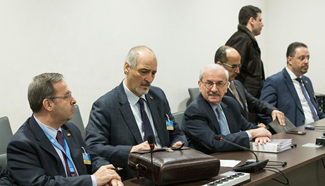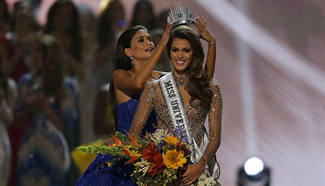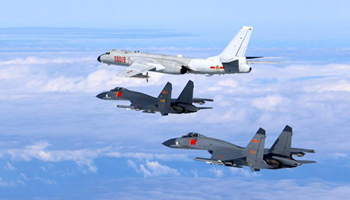by Xinhua writer Liu Chang
BEIJING, Feb. 24 (Xinhua) -- For many decades, Washington seems to have been preoccupied with an endless series of myths about China.
These jaw-dropping misconceptions suggest that China has manipulated its currency for trade gains, stolen a huge number of jobs from the United States, and seeks to upend the current world order. In a recent interview with Reuters, U.S. President Donald Trump mentioned two of these many widespread theories.
He said China can fix the nuclear problem in the Korean Peninsula "very quickly," and called China a "grand champion" of currency manipulation. It is not surprising that the new U.S. leader is uttering such words as he used to make similar statements frequently in the past.
To America's disappointment, the truth on the Korean nuclear issue is that China has no magic wand to single-handedly right what's wrong on the peninsula. Its influence over the Democratic People's Republic of Korea (DPRK), a sovereign country, has been exaggerated.
Like it or not, the Trump administration may need to accept the fact that preventing the area from engaging in a potential nuclear arms race and bringing lasting stability requires a collective effort and a reorientation of a decades-old coercive and non-communicative policy that has been passed down from one administration to the next.
In recent years, the Chinese government has done what it can to bring a responsible end to the conundrum by continuously calling for multilateral talks among all parties concerned, and agreeing to the United Nations (UN) sanctions against Pyongyang's nuclear and missile tests.
China's recent temporary suspension of coal imports from the DPRK, a move which is in line with the United Nations' punitive measures, has proved its determination to fulfill its obligations.
Still, just like Chinese Foreign Minister Wang Yi has said, Beijing believes that diplomacy, not sanctions, is the only viable path to de-nuclearize the peninsula.
More importantly, the danger of further cornering the DPRK and threatening it with more military muscle-flexing would be counterproductive at best, and further escalate the tensions in the area. The Trump White House needs to make the first move and talk to Pyongyang. The United States stands to lose nothing for trying this.
Criticizing China for manipulating its currency to prop up trade benefits is another major myth that has been circulating in Washington for quite a long time.
Both Barack Obama and George W. Bush, two of Trump's predecessors, used to threaten to label China a currency manipulator during their time in the Oval Office, yet neither rightfully did so.
Since July 2005, China has decided to unpeg the yuan against the U.S. dollar, and allow it to fluctuate against a basket of currencies so as to better reflect the market changes. Over the years, the RMB has appreciated substantially against the dollar.
As for other misconceptions, they are, like the rest, either wishful thinking or ill-founded accusations. For policy makers, misconceptions tend to beget poor judgments, while poor judgments could entail misguided policies and thereupon bring about almost always unwanted results.
Earlier this month President Trump and his Chinese counterpart Xi Jinping have concurred in their telephone conversation to build a constructive bilateral relationship that could benefit both sides.
To do that, the Trump administration needs to further deepen its understanding of China and its policies. A good starting point would be breaking with Washington's obsolete make-believe theories on China, and replace them with some hard facts.




